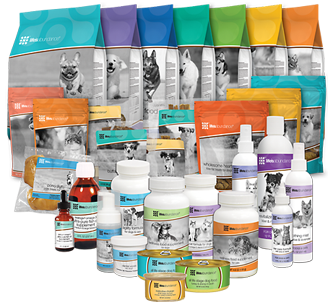Top Ten Chemicals That Worsen Canine Itch
 Chronic itch – scrapes and scratches, hot spots, reddened areas and other areas of inflammation – is just as serious a problem among dogs as it is among humans.
Chronic itch – scrapes and scratches, hot spots, reddened areas and other areas of inflammation – is just as serious a problem among dogs as it is among humans.
While dogs’ skin conditions differ somewhat from human skin issues, there’s one thing we have in common …
… the environmental chemicals that aggravate that itching sensation.
The Top Ten Chemicals That Worsen Canine Itch
Many common household chemicals can worsen canine itch.
So to make life easier (and safer) for your dog, here are the ten most dangerous and common products you should try to eliminate from your dog’s environment to prevent not only skin irritation but other chronic health issues and, in some cases, death!
-
Bleach
Most forms of bleach contain sodium hypochlorite, which can harm or irritate a dog’s skin or paws. Prevent exposure to bleach, particularly on floors and surfaces where your dog often walks or runs, by rinsing these areas with clean water before you let your dog enter your kitchen, garage, laundry room, bathroom and other parts of your home.
-
Anti-Flea Sprays, Creams and Collars
Some flea control products contain ingredients such as limonene, pyrethrin and pyrethroids (an artificial version of pyrethrin). These chemicals, including those derived from citrus oils, can induce an itching sensation and breathing difficulties.
-
Motor Oil
If your dog is at your side in the garage while you work on your car or use motor oil (which often spills or leaks from a faulty engine), that substance is a carcinogen that can cause permanent damage to a dog’s skin.
-
Lawn Products
A yard can be a dog’s source of recreation and relaxation or it can be a hazardous site because of lawn fertilizers and herbicides. These products can irritate your dog’s paws, skin and nose, increasing the risk of long-term damage.
-
Drain Cleaners and Plumbing Solvents
These products, which are available in most supermarkets and drug stores, contain sulfuric acid and lye. Contact with either ingredient can burn a dog’s skin and cause blindness.
-
Oven Cleaners
Another series of household items that can produce chemical burns because of active ingredients like sodium hydroxide and potassium hydroxide.
-
Laundry Detergent
The dyes, chemicals and perfumes in most brands of laundry detergent can induce allergies and itching in dogs and humans alike.
-
De-Icing Salts
If you live in a region where winter is a euphemism for large accumulations of ice and snow, be aware of de-icing salts (to clear roads and driveways). They can burn or crack a dog’s skin (specifically the pads on their paws), leading to infections and inflammation.
-
Windshield Wiper Fluid
Again, if you work on your car in your garage or driveway, the slightest amount of spillage of this fluid (which contains methanol and isopropyl) can permanently harm a dog’s skin and could have lethal consequences.
-
Food Allergies
If your dog suffers from chronic itch that tends to worsen after meals, food may be the culprit. Try switching to whole foods, preferably a human grade food quality diet, and monitor any changes (for better or worse) over the course of one to two weeks. (Find out how to switch your dog to a healthy diet today. Click here)
This List Is Just The Beginning
It’s really simple, stop using harmful chemicals on your lawn and floors. Look for natural and organic products free of toxic ingredients. And when it comes to your dog’s food – If you think what he’s eating is making him itchy, you might be right. Switching him to a different food could be the answer and why not try feeding him real food? Knowing what your dog is built to eat is a great place to start.


 Life's Abundance Pet Foods
Life's Abundance Pet Foods
Leave a Reply